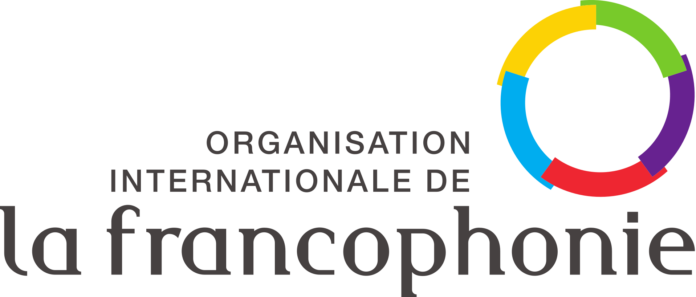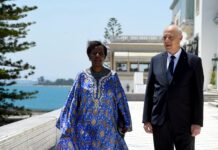In a presidential decree (No. 2021-113 of 6 September 2021), the President of the Republic set “the exceptional procedures applicable to public orders relating to the organization of the eighteenth summit of the Francophonie.”
The article specifies that the purpose of the decree is to set exceptional procedures relating to the preparation, conclusion, execution and control of public orders related to the organization of the eighteenth summit of the Francophonie to be held in Djerba during the month of November 2021.
Art. 2 – The exceptional procedures provided for in this presidential decree are applicable to public orders concluded in particular by the following public bodies:
• The Presidency of the Republic,
• The Ministry of National Defence,
• The Ministry of Foreign Affairs, Migration and Tunisians Abroad,
• The Ministry of the Interior,
• The Ministry of Transport and Logistics,
• The Ministry of Equipment, Housing and Infrastructure,
• The Ministry of Tourism,
• The Establishment of Tunisian Radio,
• The National Establishment for the Promotion of Festivals and Cultural and Artistic Events,
• The National Broadcasting Office,
• The Tunisian National Tourist Office,
• The Foreign Investment Promotion Agency,
• The Regional Council of the Governorate of Medenine,
• The municipality of Djerba Houmt Souk,
• The municipality Djerba Midoun,
• The municipality Djerba Ajim,
• The municipality Zarzis North.
Other ministries, local authorities or public institutions interested in organizing the eighteenth summit of the Francophonie may be added by decision of the Minister of Foreign Affairs, Migration and Tunisians Abroad at the request of the Minister or the sectoral minister concerned.
Art. 3 – The list of public orders concerned by the exceptional provisions provided for in this presidential decree, is fixed by decision of the Minister of Foreign Affairs, Migration and Tunisians Abroad, on the proposal of the ministries interested in the organization of the summit, and this, within a period not exceeding three days since the publication of this presidential decree.
The general coordinator of the Executive Committee from the National Organizing Committee of the Eighteenth Summit of the Francophonie, ensures the follow-up of the execution of public orders with the various ministries, local authorities or public institutions concerned.
Art. 4 – The public orders provided for in Article 3 of this Presidential Decree are concluded according to one of the following modalities according to the choice of the public purchaser:
• By means of extended consultation for suppliers authorized to participate in the consultation phase by submitting technical and financial offers within a maximum period of 10 days. The same period shall extend to consultations which are submitted to the committees on contracts and expenditure of a secret nature subject to a special control procedure;
• By direct negotiation with one or more specific suppliers chosen in particular because of their specialty and ability to satisfy orders within the deadlines set by the public buyer.
The competent procurement control committees must issue their opinion on draft contracts by direct negotiation and communicate it to the public purchaser concerned within 24 hours of receipt of the file. This period may be doubled in order to provide certain additional documents or clarifications necessary to study the file and decide on it.
Art. 5 – Where an extended consultation is organised, the following procedures shall apply:
• Launch of a call for tenders to suppliers, contractors, service providers and design offices through the available means,
• Opening and evaluation of tenders by competent committees at the level of the body concerned,
• Evaluation commissions evaluate bids and conduct negotiations on the price and terms of the contract.
Art. 6 – The public orders mentioned in Article 3 of this Presidential Decree are exempt from the obligation to apply electronic procedures through the online public procurement system “TUNEPS”.
Art. 7 – Tenders are opened, evaluated and controlled by the competent committees provided for in Decree No. 2014-1039 of 13 March 2014 referred to above, or with the help of the special manuals or internal regulations of the companies and public institutions concerned, in accordance with the provisions laid down in this Presidential Decree.
Art. 8 – The work of the public expenditure controllers and the State auditors, according to the attributions devolved to each of them, consists in verifying the accuracy of the invoicing of expenditure and the availability of credits, after having taken note of the decision of the commission concerned, and this, for purchases in the context of public contracts.
The controller of public expenditure refers to material safety data sheets, appropriations slips and commitment proposals.
The public expenditure controller or the State controller, as the case may be, shall carry out the tasks provided for in this Article within a period not exceeding 24 hours from the receipt of the relevant documents.
Art. 9 – The interested public purchaser may grant advances to the holders of contracts not exceeding 20% of the initial amount of the contract for the public orders mentioned in Article 3 of this Presidential Decree. These advances shall be granted at the written request of the holder of the contract, upon production of an undertaking by the joint and several guarantor to reimburse the full amount of the advance at the first request of the public purchaser.
Art. 10 – The exceptional procedures provided for in this presidential decree cease to be applied at the latest at the end of the eighteenth summit of the Francophonie. However, contracts which have been the subject of a call for tenders under its empire shall be completed in accordance with its provisions.
Rifi-JDD











